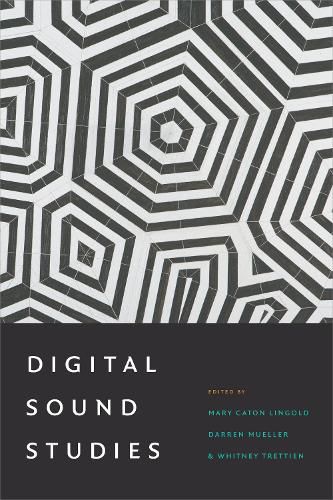Readings Newsletter
Become a Readings Member to make your shopping experience even easier.
Sign in or sign up for free!
You’re not far away from qualifying for FREE standard shipping within Australia
You’ve qualified for FREE standard shipping within Australia
The cart is loading…






The digital turn has created new opportunities for scholars across disciplines to use sound in their scholarship. This volume’s contributors provide a blueprint for making sound central to research, teaching, and dissemination. They show how digital sound studies has the potential to transform silent, text-centric cultures of communication in the humanities into rich, multisensory experiences that are more inclusive of diverse knowledges and abilities. Drawing on multiple disciplines-including rhetoric and composition, performance studies, anthropology, history, and information science-the contributors to Digital Sound Studies bring digital humanities and sound studies into productive conversation while probing the assumptions behind the use of digital tools and technologies in academic life. In so doing, they explore how sonic experience might transform our scholarly networks, writing processes, research methodologies, pedagogies, and knowledges of the archive. As they demonstrate, incorporating sound into scholarship is thus not only feasible but urgently necessary.
Contributors. Myron M. Beasley, Regina N. Bradley, Steph Ceraso, Tanya Clement, Rebecca Dowd Geoffroy-Schwinden, W. F. Umi Hsu, Michael J. Kramer, Mary Caton Lingold, Darren Mueller, Richard Cullen Rath, Liana M. Silva, Jonathan Sterne, Jennifer Stoever, Jonathan W. Stone, Joanna Swafford, Aaron Trammell, Whitney Trettien
$9.00 standard shipping within Australia
FREE standard shipping within Australia for orders over $100.00
Express & International shipping calculated at checkout
The digital turn has created new opportunities for scholars across disciplines to use sound in their scholarship. This volume’s contributors provide a blueprint for making sound central to research, teaching, and dissemination. They show how digital sound studies has the potential to transform silent, text-centric cultures of communication in the humanities into rich, multisensory experiences that are more inclusive of diverse knowledges and abilities. Drawing on multiple disciplines-including rhetoric and composition, performance studies, anthropology, history, and information science-the contributors to Digital Sound Studies bring digital humanities and sound studies into productive conversation while probing the assumptions behind the use of digital tools and technologies in academic life. In so doing, they explore how sonic experience might transform our scholarly networks, writing processes, research methodologies, pedagogies, and knowledges of the archive. As they demonstrate, incorporating sound into scholarship is thus not only feasible but urgently necessary.
Contributors. Myron M. Beasley, Regina N. Bradley, Steph Ceraso, Tanya Clement, Rebecca Dowd Geoffroy-Schwinden, W. F. Umi Hsu, Michael J. Kramer, Mary Caton Lingold, Darren Mueller, Richard Cullen Rath, Liana M. Silva, Jonathan Sterne, Jennifer Stoever, Jonathan W. Stone, Joanna Swafford, Aaron Trammell, Whitney Trettien